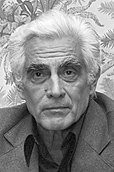| ||||||||||||||||||||||||||||||||||||||||||||||||||||||||||||||||||||||||||||||||
All 305 Portuguese municipalities and 4,260 Portuguese Parishes All 1,975 local government councils | ||||||||||||||||||||||||||||||||||||||||||||||||||||||||||||||||||||||||||||||||
|---|---|---|---|---|---|---|---|---|---|---|---|---|---|---|---|---|---|---|---|---|---|---|---|---|---|---|---|---|---|---|---|---|---|---|---|---|---|---|---|---|---|---|---|---|---|---|---|---|---|---|---|---|---|---|---|---|---|---|---|---|---|---|---|---|---|---|---|---|---|---|---|---|---|---|---|---|---|---|---|---|
| Turnout | 63.0% | |||||||||||||||||||||||||||||||||||||||||||||||||||||||||||||||||||||||||||||||
| ||||||||||||||||||||||||||||||||||||||||||||||||||||||||||||||||||||||||||||||||
Local elections were held in Portugal on 15 December 1985. They were the fourth local elections in Portugal since the democratic revolution of 1974 introduced the concept of democratic local power. The elections took place just nine weeks after the 1985 legislative election and just one month before the 1986 Presidential elections.
The elections consisted of three separate elections in the 305 Portuguese municipalities that existed at the time, the election for the Municipal Chambers, whose winner is automatically elected mayor, similar to first-past-the-post (FPTP), another election for the Municipal Assembly and a last one for the lower-level Parish Assembly, whose winner is elected parish president, this last was held separately in the more than 4,000 parishes around the country. This election was the first to grant a 4-years term, instead of the former 3 years. The number of members of the Municipal Assemblies and Parish Assemblies was greatly reduced in comparison with the former election.
For the first time, the Social Democratic Party achieved the majority of the voting by itself, since the coalition with the Democratic and Social Center, the Democratic Alliance, that achieved good results in 1979 and 1982 had been disbanded. Despite finishing second and losing almost 4 points in share, the Socialist Party lost only 4 of the former 83 mayors plus the presidency achieved in coalition with the Leftwing Union for the Socialist Democracy.
The Democratic and Social Center, this time participating alone in every election, after the end of the Democratic Alliance, continued its electoral decline, gathering only 10 percent of the votes. Despite keeping the same number of mayors achieved in 1982, in the municipalities where it ran alone, 27, the party lost 49 presidencies achieved in coalition with the Social Democrats.
The Portuguese Communist Party and the Portuguese Democratic Movement, united in the United People Alliance, lost one percentage point in comparison with the election of 1982 and lost 8 mayors, gathering only 47 presidencies. However, despite only a small drop in share of the vote, in the elections to Municipal Assemblies, the coalition lost almost 700 assembly members, decreasing its representation to 1062 members due to the overall reduction of mandates.
The newly founded Democratic Renewal Party, achieved almost 5 percent of the voting and the presidency of 3 municipalities. In the elections to Municipal Assemblies it gathered almost 6% of the voting and 270 Assembly members, being the great surprise of the election.
Turnout in these elections fell more than eight points compared with 1982, with 63 percent of voters casting a ballot. It was also the last local election under a 3-year term.

